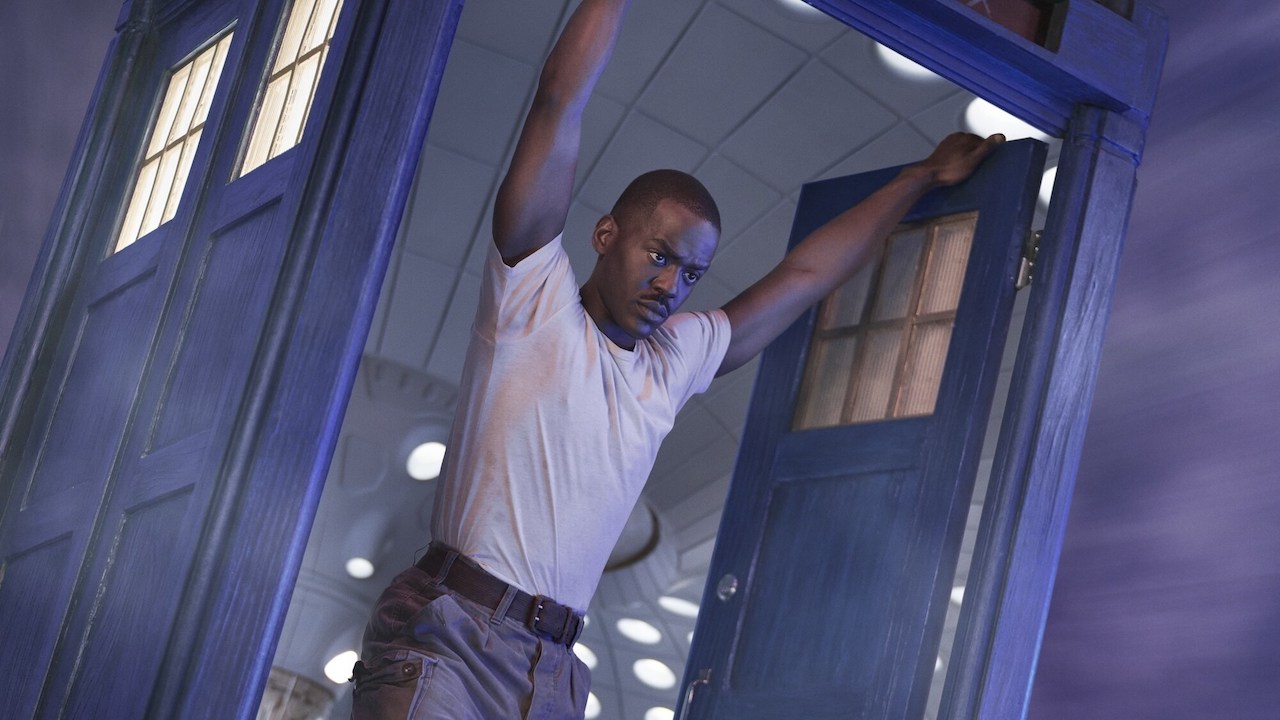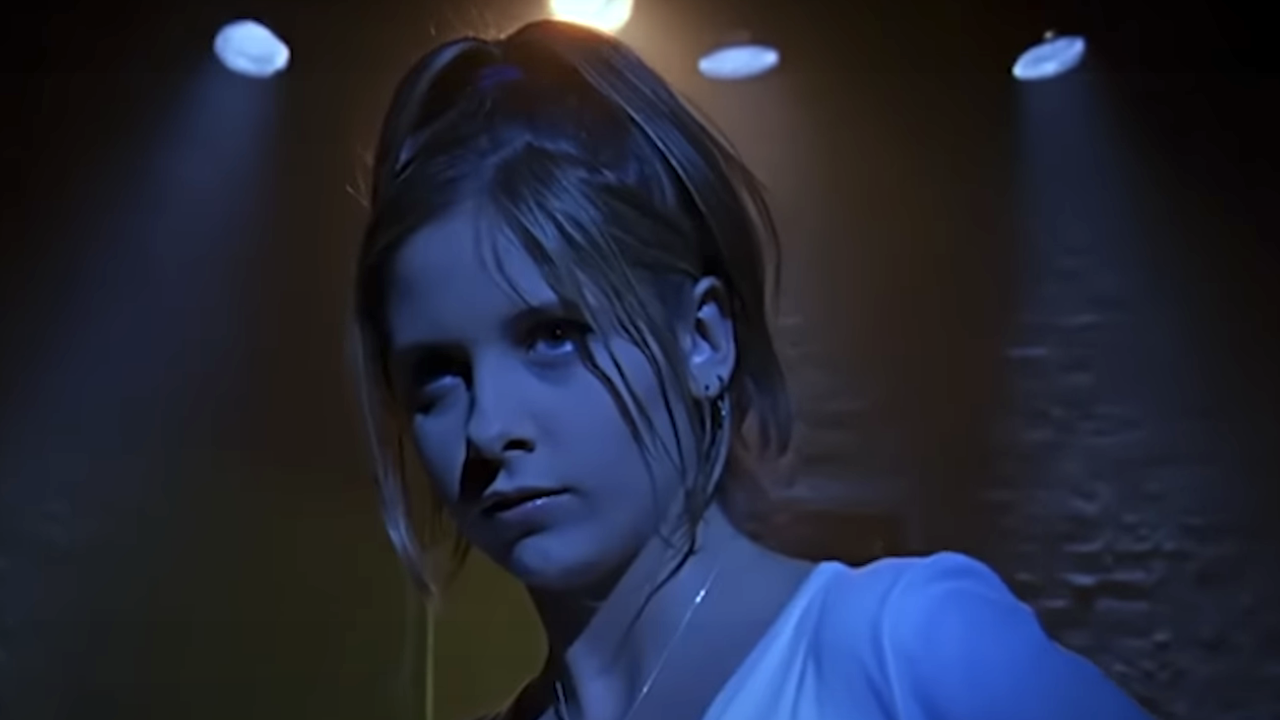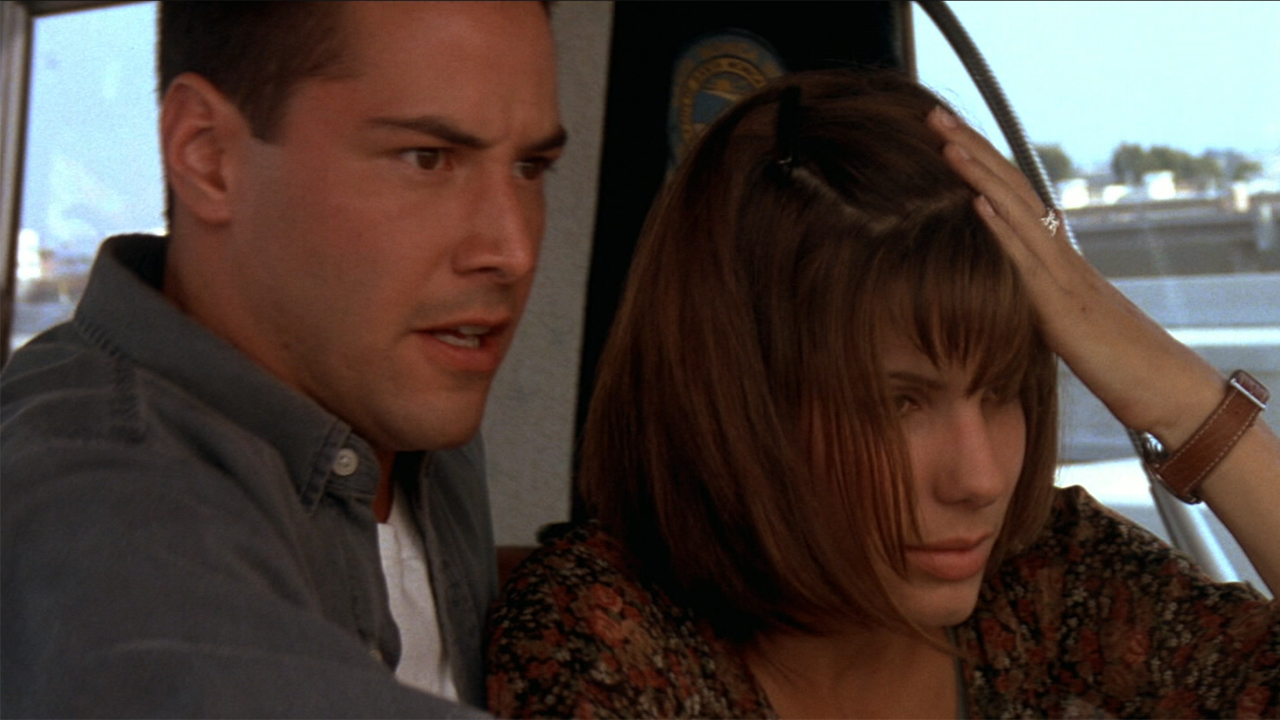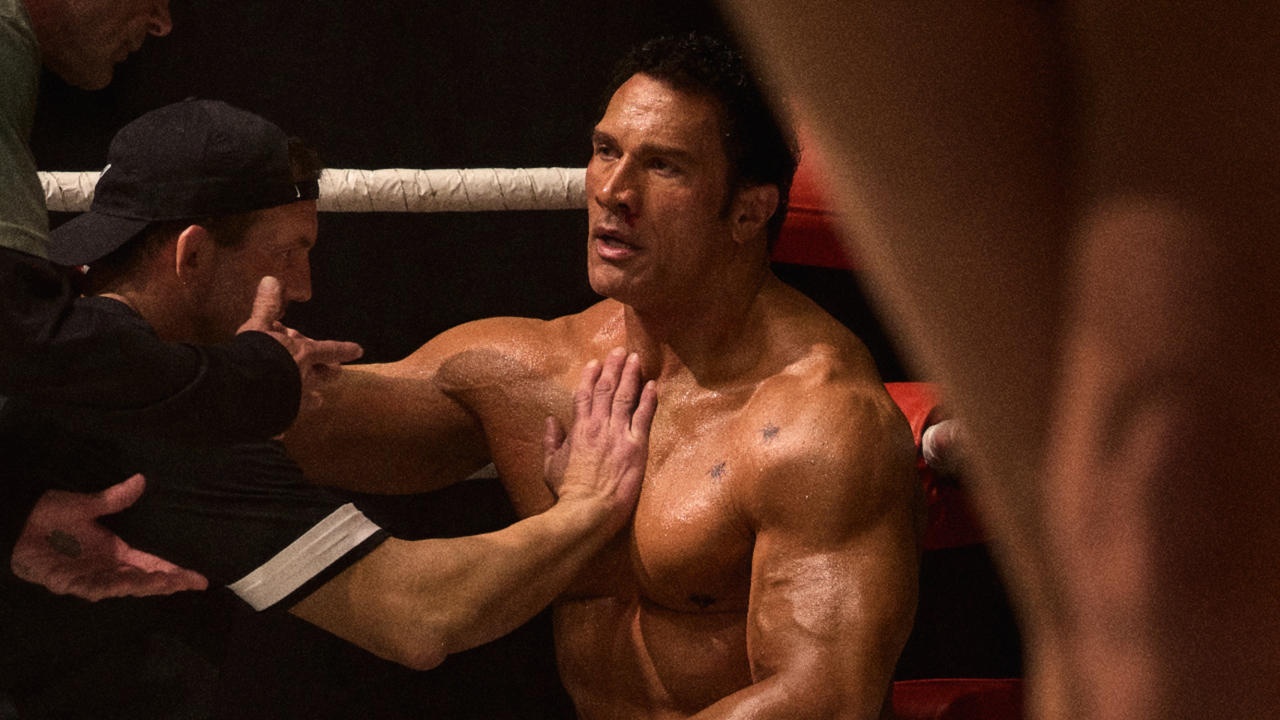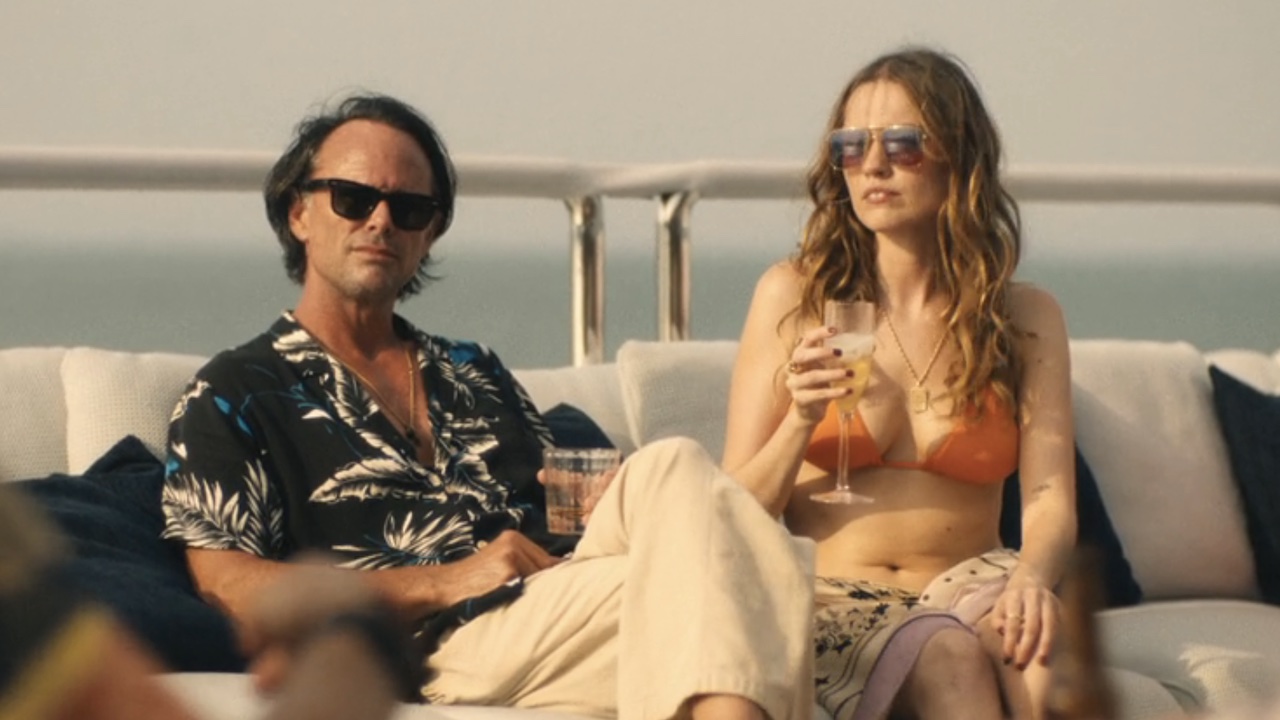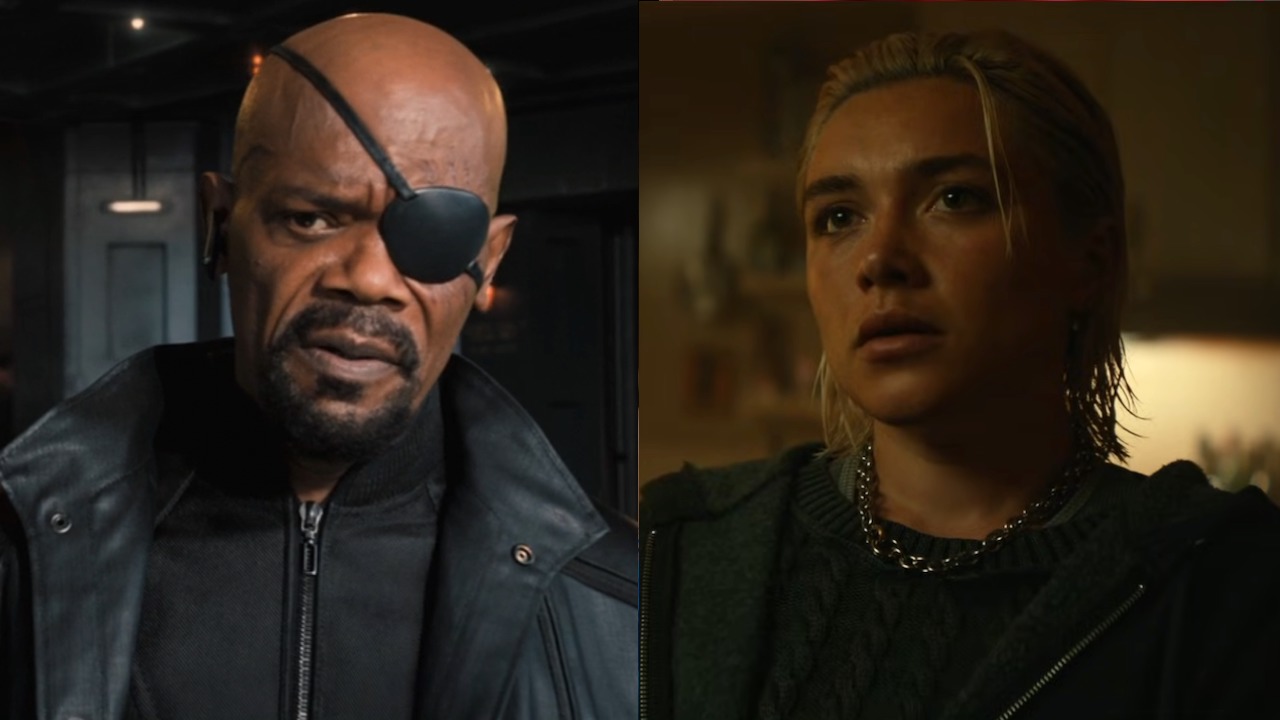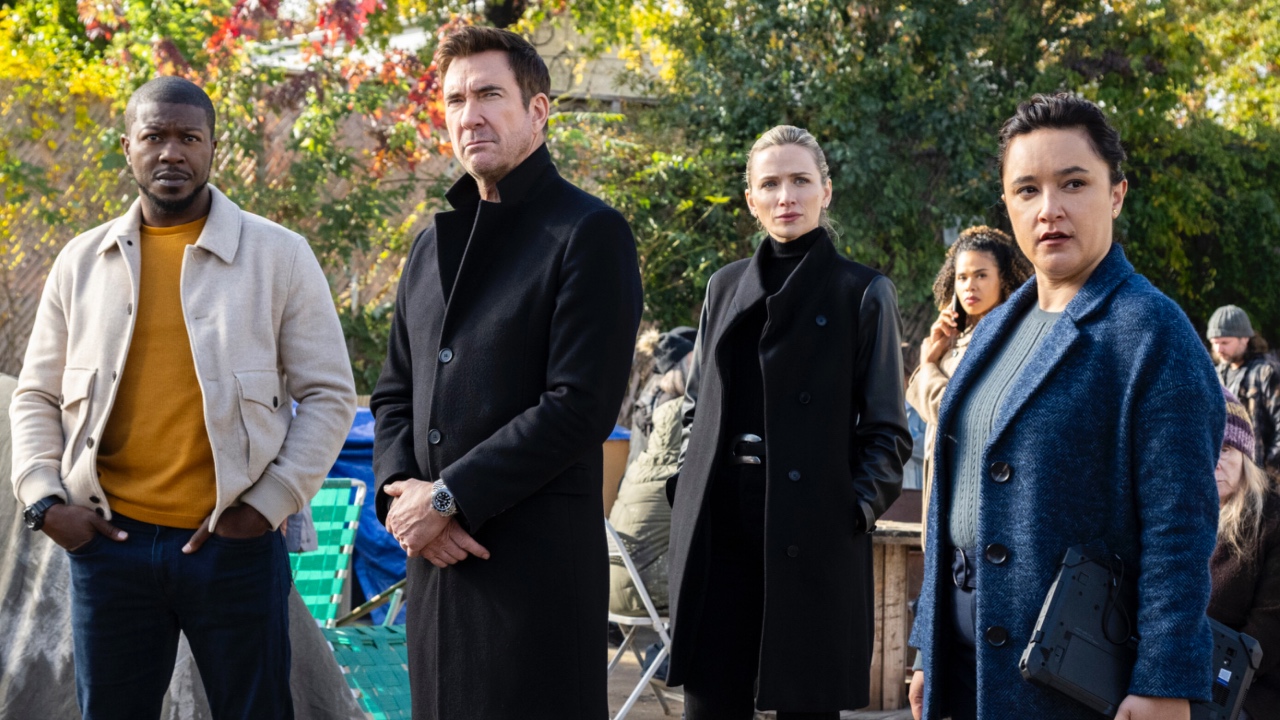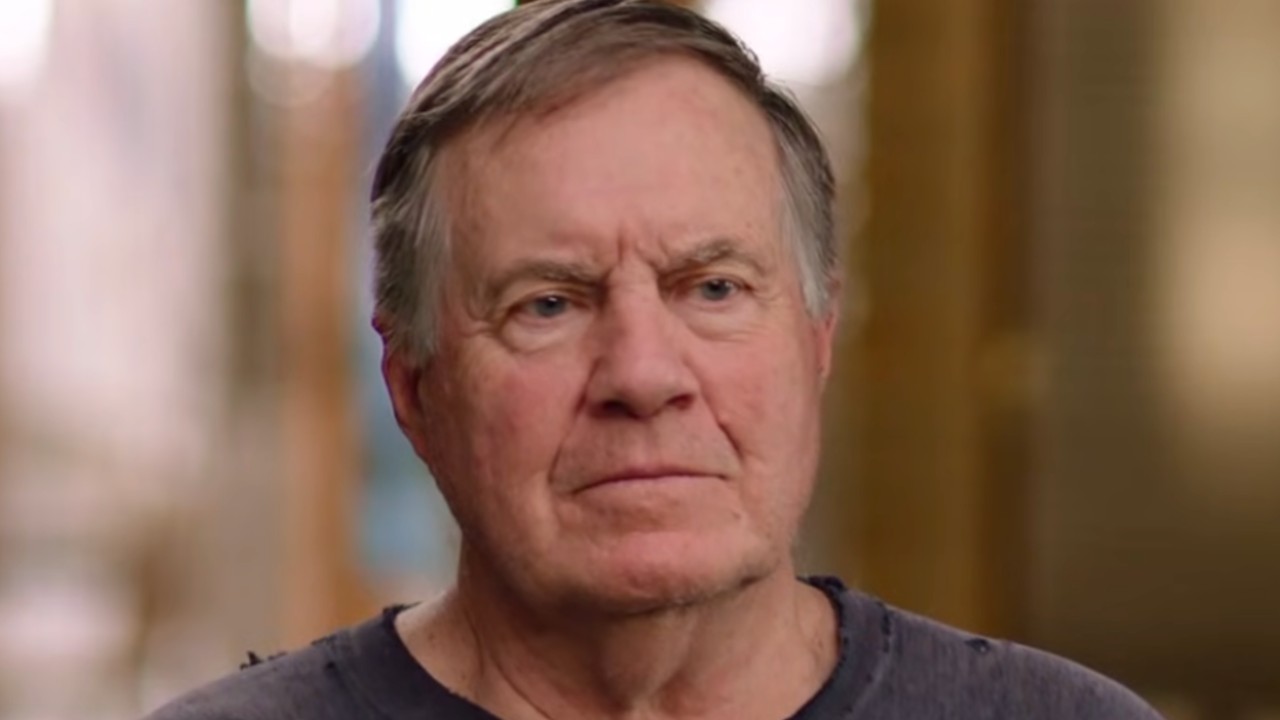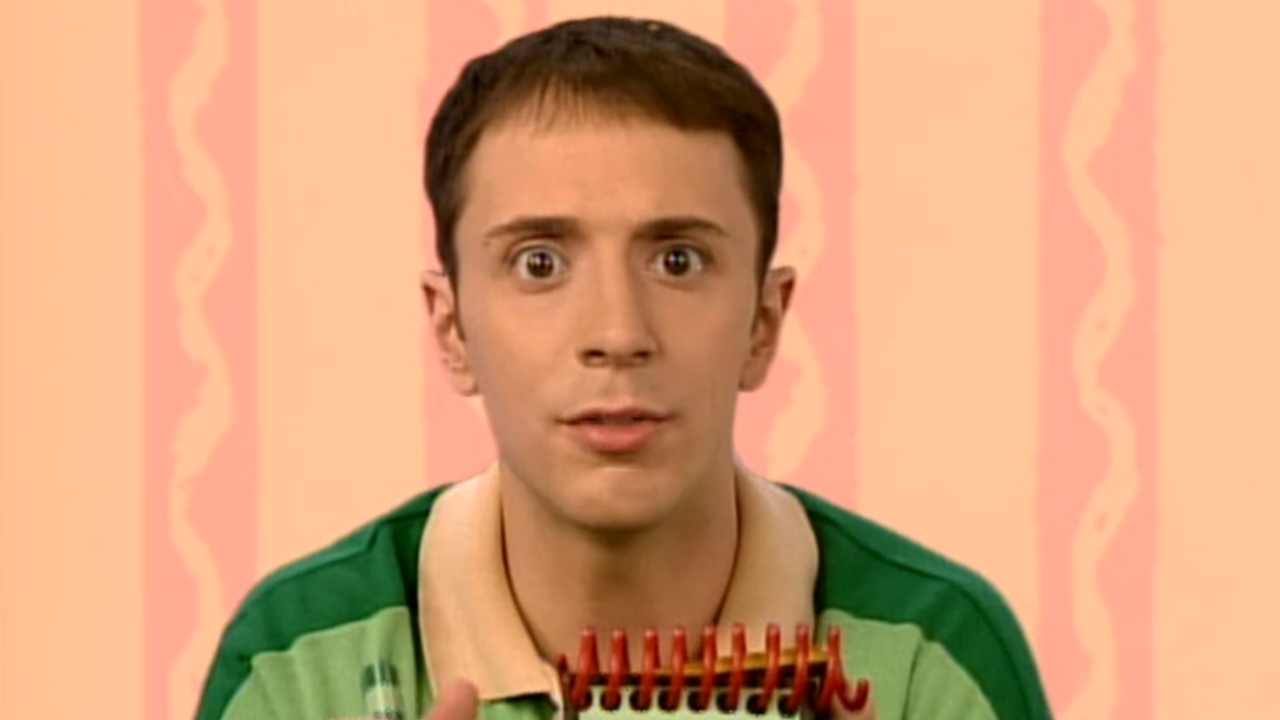Interview: The King's Speech Director Tom Hooper Makes History Modern
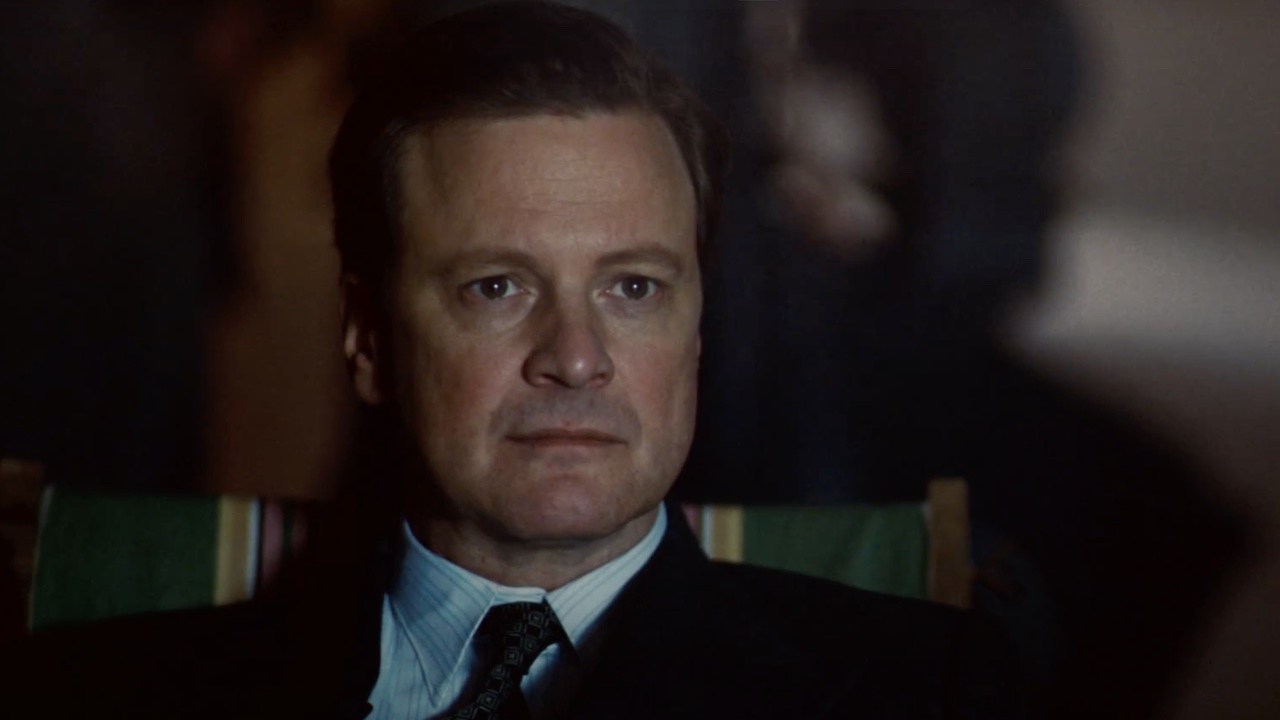
Tom Hooper already proved recently to audiences that he has a knack for telling historical stories with warmth, humor and humanity, directing the HBO miniseries John Adams to 13 Emmy nominations and universal acclaim, even from people who thought they'd seen enough of our Founding Fathers. Now he's back across the pond in his native England but doing it again as the director of The King's Speech, a film about England's King George VI and the debilitating speech impediment he overcame just as his country was on the verge of entering World War II. It sounds stuffy, sentimental and over-serious but The King's Speech is the opposite of all those things, a dynamic and frequently thrilling story about friendship and duty and a man who would have been ordinary except for the extraordinary circumstances of having to become King. George was forced to take the throne when his older brother David (played by Guy Pearce in the film) abdicated in order to marry the twice-divorced American Wallis Simpson; George's eldest daughter, Elizabeth, went on to succeed him as Queen after his death in 1952.
I talked to Hooper a few weeks ago, both in a 1:1 interview and a roundtable conversation later on, where he proved that it takes whip smarts, careful consideration of everything and a willingness to embrace humor to make a film as engaging and enjoyable as The King's Speech. Check out our conversation below, and see The King's Speech opening in limited release this Friday-- though, given the amount of Oscar buzz the movie has garnered so far, you'll definitely be hearing more and more about it in the coming weeks.
How do you access historical stories like this in a way that doesn't make it feel like history?
I don't see it as history. To me this story is pretty present. The writer David Seidler was born in 1937, still remembers these speeches during the war. David had a stammer as a child, and he used to listen to King George VI on the radio to assure himself he could overcome it. I've never thought they weren't human beings. I don't understand that there's a way to look at them apart from human beings. When I did John Adams I was aware that American children thought these founding fathers were so on a pedestal that they found it hard to imagine them as flesh and blood. Since I'm not an American I had the freedom to not be inhibited by that.
Were you more inhibited telling the story of the King then?
No, because we still don't know that much about him. And in some ways he's been a little neglected in the public consciousness. I certainly think, I was pretty vague about whether he had a stutter or not, and certainly no one knows about the story of the speech therapist. I appear to be drawn to iconic characters and what they reflect back to our cultures. It's not why I did it, but I certainly think it's interesting that the English are quite conflicted about the monarchy; on one hand they're revered and loved, they're like a national soap opera. On the other they enshrine an idea of class difference and privilege in a modern, progressive democracy. I think what's so fascinating about the story [in The King's Speech] is it debunks any simplistic notion of privilege. George VI's story properly understood is not a story of privilege; his upbringing was so nightmarish that he got a stammer as a result. When he became king, clearly that was a nightmare because of his stammer, because of the coming of radio as a technology. So if he's not privileged, the monarchy has to shift as a result. And you understand the current Queen if you understand her father, that sense of duty and that sense that it's the opposite of a hedonistic approach to power. It's very much about his idea of duty, which I don't think we have particularly strongly in our culture anymore.
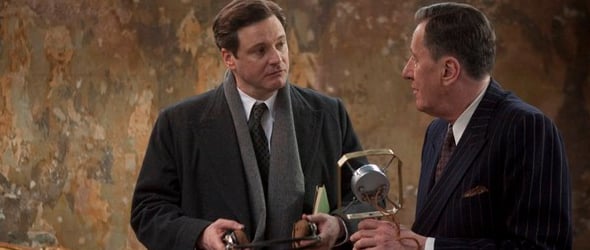
How did you pick Colin Firth to play King George VI?
CINEMABLEND NEWSLETTER
Your Daily Blend of Entertainment News
When I first met with Colin, my reservations were that he was 10 years too old. And Colin's a big strapping lad of 6'2, and the real king was smaller and more sickly looking. The more I thought about it and spent some time with Colin, though, the more the spiritual similarity was more important than the physical thing. Colin is nice to his core, and he's tremendously gentle, he's got a tremendous humility. And the real king, from my research, seems to be that. It's no surprise Colin isn't cast as a testosterone-fueled action hero. He doesn't get cast as the bad guy. It's not in his DNA. The physical side in a way came out of that. Thanks to Tom Ford he was the slimmest he's ever looked, and then I worked on his body language. We sat in a chair and he would shrink into it, collapse into himself. When he stood he stood in a more awkward way. I tried to get out of him his physical confidence in his posture. The most extraordinary day for me was the first day, the first day they meet, that long 10-minute scene that always plays so well in the theater. We'd had a three-week rehearsal, which is incredibly intense. To see Colin and Geoffrey inhabiting their characters from day one of the shoot. There's always that doubt wondering, "is he one of the greats or is he just very good?" That day I knew he was one of the greats.
And how about Helena Bonham Carter?
I fell in love with Helena in A Room with a View when I was a teenager. She's a great classical actress, and I thought it was sad that she hadn't done classical acting for so long. I thought people would be hungry to see her do that again. I grew up with a picture of her on a poster on my wall in A Room With A View, though I have to admit the photograph of the Panavision platinum camera, that was on the same poster, was far bigger than she was. And her research was amazing. Every time I went to her and Tim's house there would be another royal historian having supper with her. What's extraordinary is two minutes in you accept that she's the Queen Mother.
And what did Geoffrey Rush add to the cast?
He's great to work with because he's got this extraordinary enthusiasm. He's got the energy of a five-year-old child. You work with someone who's completely tireless in their pursuit of excellence We had a three-week rehearsal partly because Geoffrey called me up and said, "I"m not doing anything, why don't we get started?" All while his agent was defending him coming up only a week before. He wanted to get started. It was interesting working with these two men, because Colin is very funny but he's quite reserved, and Geoffrey has this great dynamism. There was such an energy going on. Geoffrey was there for four weeks and then he left to go do a play, and Colin was kind of in mourning. It was very sweet. Helena got very jealous, 'Oh, you're sad because Geoffrey's left.' She was making jokes that it was a love story and wasn't with her.
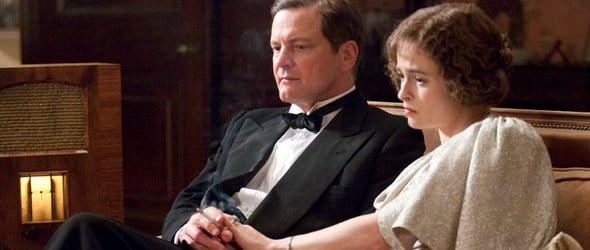
How did you work in the younger Elizabeth, and have those little reminders of her relationship with her father, and her becoming Queen?
If anything I lingered on it a bit more in the edit, I tested the film and particularly American people didn't make the connection, didn't realize it was the queen. I think it's a shame if you don't realize it's the queen, and I think it's a shame if you don't realize that's her father, because there's something interesting in being reminded that's her father. I just made sure the camera gave her more status and gave people that reminder.
Are we supposed to have negative feelings about Wallis Simpson at the end of the movie?
I wanted to connect with the story from the younger brother's point of view. If you're Elizabeth and Bertie, what David did was shockingly selfish. And we know from the history books that he never sat down to talk about his decision to abdicate in advance. I wanted to connect with the story from their point of view. Both men had these strong relationships with women who dominated them. With the Queen Mother I think the dominance was benign, and with Wallis it was a slightly darker flavor. Guy Pearce and I thought there was a strong driver there with the notion of sexual jealousy. The great mystery is why he had to marry her. I know that sounds strange, but Edward VII, his grandfather, had a string of long-term mistresses. So you kind of go, no one would have batted an eye if he kept Wallis as his mistress his entire life. The clue is that during the abdication process Wallis said, "Let's break up, it's crazy for you to do this," and that enraged him and made him more determined to marry her. Which suggests he wanted the kind of closure, to make her safe and to own her. That's my own reading of it, but I think of that famous shot of them in later life, and they look so sad.
The cinematography, and the way the camera is place and the colors, there's this interesting thing going on that I couldn't quite put my finger on. The way characters are placed within the frame, it feels less stuffy and in the past.
Well partly it's that I chose to shoot the close-ups in the consulting room and on Bertie on relatively wide lenses. Normally you shoot close-ups on these long lenses, in Hollywood. By placing the camera close, it's quite brutal on the actor. It's very forensic, there's nowhere to go. You have this sense that it's very brutal photography. You don't go long lenses, it's not romantic, it's not soft focus. I did it because I thought Colin's face should be framed in relation to negative face, and Geoffrey should be framed in relation to cluttered domestic backgrounds. In the first consulting room scene, Colin's up against this blasted wall, he's in the bottom left and the wall is dominant. His face is in dialogue with negative space in the frame, and that was because I wanted to find a way to talk about absence and silence. If you have a stammer it's about inhabiting these painful absences and silences. That would be a visual metaphor for what stammering is like. But when you go around to Geoffrey, he's got the fireplace and the chairs and the clutter and the pictures, and it's kind of cozy. Also shooting wide on people brings the environment constantly into the frame; people don't escape their environment. There's probably a modernity in that that I quite liked. I'm always trying to find ways of making this feel present tense to people. In John Adams there's lots of stuff, like the handheld photography and the roughness of the photography. I wanted the filmmaking to feel very not reverential.
R But in The King's Speech the framing is also very formal, and has well composed frames. Is that reflecting the royalty element?
You're right, there's a constraint in them. THere's a huge amount of intention in my farming. I frame things myself, and there's very strong choose made. And I liked putting Colin in these frames that felt decisive, because he's in this box himself.
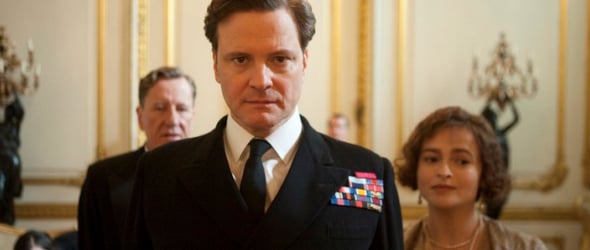
What are your thoughts on the MPAA giving an R rating?
i think it's really bizarre. You can kind of go, "One fuck means PG-13, two fucks means an R." And they don't go "One guy shot in the head means PG-13, two guys means R." It's an argument that you can quantify language and can't quantify violence, and I find that highly suspect. Language is highly contextual, and here we've got the F-word being used in speech therapy. It's been used purely as a mechanism to free someone from a stammer. David Seidler, the writer, encountered this technique as a child in the 1940s. You think, OK, it was a OK in the 1940s for a kid, it's possibly OK in 2010.
Have you been able to soak in any of the early Oscar buzz?
Call me old-fashioned, but this still hasn't made a dollar at the box office. I'd like to get to the release, have it try and make sure people go and see it, and then worry about that next year. I've sat down in audiences, and it's such a fun film to see in a big group. I want people to see it in the cinema en masse as a common experience, and not wait for the DVD.
Staff Writer at CinemaBlend
'It's All Gonna Add Up': Grosse Pointe Garden Society Bosses Promise Answers About The Big 'Quiche' Mystery, And Alice Is Asking All The Right Questions In An Exclusive Episode Clip
NCIS: Origins Showrunners Told Me Why They Handled Gibbs And Lala Romance The Way They Did, And I Completely Agree With The Decision

